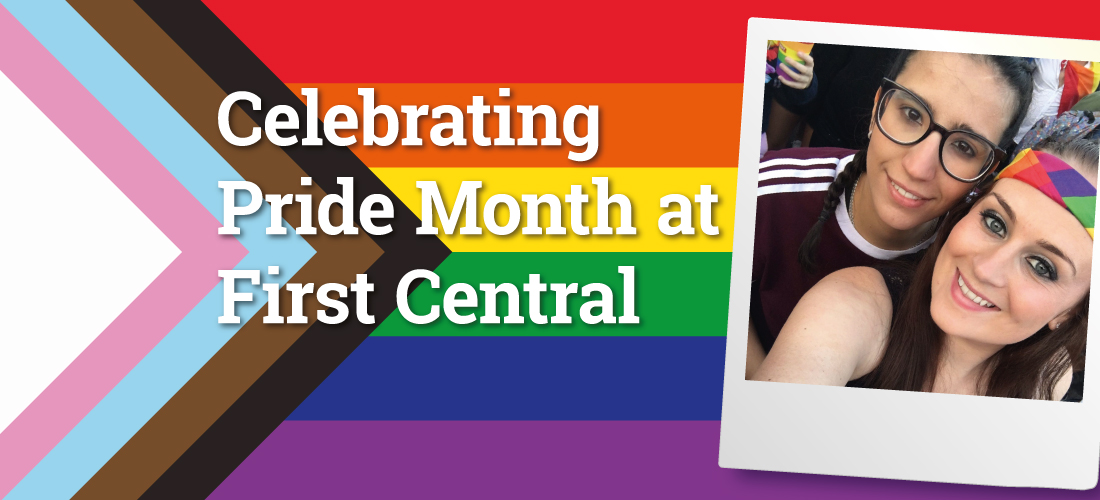How to be a good ally in the workplace
With Pride Month well underway, First Central's Lucia Goncalves shares some top tips on how to be a good ally at work.

June is Pride Month and the time of year when many companies show their support for the LGBTQ+ community.
Here at First Central, it goes deeper than that. We’re committed to being inclusive and embracing diversity, and that’s why we have a Diversity and Inclusion (D&I) programme, to help raise awareness across the board and create an engaged and inclusive organisation.
As part of the programme, and to support our LGBTQ+ colleagues, we educated our colleagues on how to be a good ally in the workplace.
Here, First Central Product Owner Lucia Goncalves talks about what an ally is and shares some tips on being a good ally at work, to encourage colleagues to become a more aware, supportive community.
What is an ally
An ally is a heterosexual and/or cisgender person (a person whose gender identity matches their sex assigned at birth) who not only supports equal civil rights, gender equality, and LGBTQ+ social movements but actively challenges homophobia, biphobia, and transphobia.
With a large workforce, it’s important that we all play our part in creating an inclusive work environment for LGBTQ+ colleagues. But you can't simply say you're an LGBTQ+ ally, you have to act like one – not only at work but everywhere else too.
Educate yourself and recognise your bias
Take the time to learn about the LGBTQ+ community – both historic and current events will give you a good understanding of what challenges your LGBTQ+ colleagues face in the workplace and in life. There are loads of resources including documentaries and news articles that you can explore.
At First Central, we help educate our colleagues through e-learning courses. We rolled out a mandatory Unconscious Bias e-learning course to all managers, as well as a broader D&I e-learning course for non-managerial colleagues.
Use gender-neutral greetings
Many people make the mistake of assuming a person’s gender identity by using gender-specific greetings like “Hi guys”.
This one is hard to crack, but next time you email the team or open a call, try something like, “Hey people”, “Hi all”, “Hey everyone”, “Hello team” to ensure we’re all more inclusive with our language.
Unless you know someone's personal pronouns, try to use gender-neutral language or ask them what their preferred pronouns are.
The use of gender-neutral language should also extend to people’s partners and family members. Consider how it would make someone feel if they kept being asked about their husband, when in fact, they have a wife. This often happens to people in the LGBTQ+ community and has happened to me. It can be hurtful or awkward and feels like you’re constantly having to come out.
Take a stand
According to the Human Rights Campaign, more than half of LGBTQ+ people (53%) said they've heard lesbian and gay jokes at work. Many people still feel scared to say anything, and while my personal experience at First Central has been positive, it's important to remain vigilant and not be silent when you hear derogatory remarks. Speak up and let it be known that such remarks aren't welcome.
Connect with LGBTQ+ colleagues
An important way to embed an inclusive culture is by meeting with LGBTQ+ colleagues one-on-one and asking them about their experiences so long as they feel comfortable to share them. If you know any LGBTQ+ people who are out, ask them what their experience is like in the workplace and how you can support them.
Remember, it’s okay to recognise that you may lack some information, but it’s still important to be respectful, thoughtful and do your research on inappropriate questions to ask.